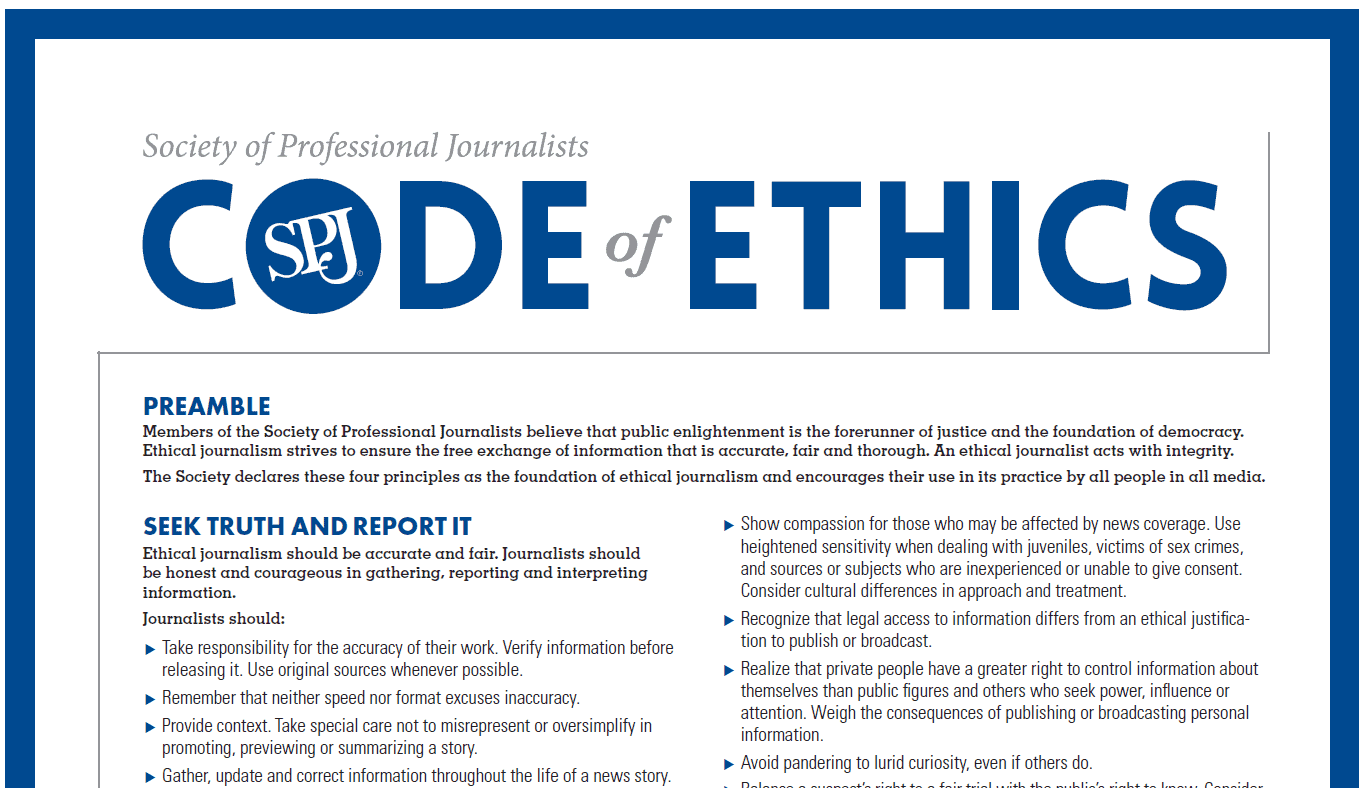Editorials & Opinions
Ethics at the Heart: The Guiding Principles Shaping Journalism Today

In the current media landscape, ethical journalism remains a cornerstone of credible reporting. Discussions within newsrooms are ongoing about how to navigate sensitive topics and protect the identities of minors, victims, and whistleblowers. These conversations mirror the broader challenges faced by journalists, editors, and publishers striving for accuracy and fairness in their reporting.
Unlike some professions, journalism does not require formal licensing or government oversight to practice. However, the ethical foundations that guide journalists are crucial to maintaining integrity in their work. These principles are typically outlined in employment packets and introduced in journalism education.
The Society of Professional Journalists emphasizes the role of public enlightenment in achieving justice and sustaining democracy. Their ethical guidelines define key principles, notably the importance of seeking truth and reporting it accurately. Journalists are encouraged to verify facts meticulously, use original sources, and uphold accountability throughout their reporting processes.
Context is vital, demanding that journalists avoid oversimplification and misrepresentation. Ongoing updates and corrections are expected throughout the lifecycle of a news story. Furthermore, journalists should diligently seek the perspectives of those affected by their coverage, allowing individuals facing criticism an opportunity to respond.
Ethical conduct also extends to minimizing harm. Respecting the dignity of sources, subjects, and the public is paramount. Journalists must balance the public’s right to know with considerations about the potential impact on individuals involved, especially in cases involving juveniles or vulnerable populations. Sensitivity to cultural differences is crucial in these interactions.
Independence is another fundamental principle. Journalists must navigate potential conflicts of interest, disclosing any unavoidable ones while refusing gifts or favors that could compromise their integrity. Maintaining a clear distinction between news and advertising is essential in preserving public trust.
Lastly, accountability and transparency are essential in ethical journalism. Journalists are responsible for explaining their ethical choices to the public and addressing questions regarding accuracy and fairness promptly. Acknowledging and correcting mistakes swiftly is also vital in upholding the credibility of the profession.
Christopher Fox Graham
Managing Editor


















